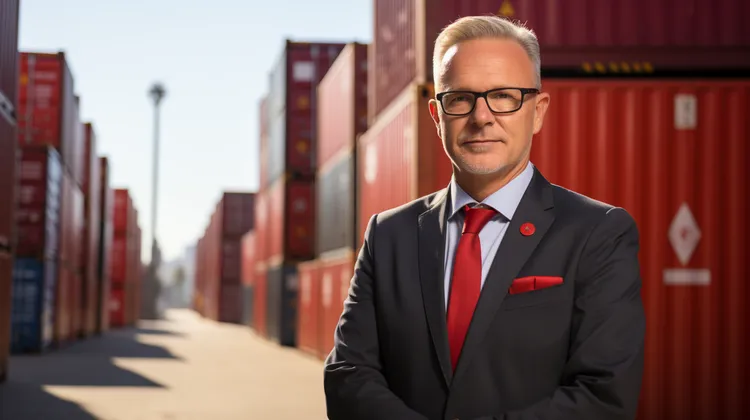
Vodafone and Chainlink: Blockchain Empowers Global Trade
Vodafone and Chainlink have recently partnered to explore the potential of blockchain technology in supporting global trade processes. The collaboration aims to enhance supply chain transparency and efficiency by leveraging the unique features of distributed ledger technology.
Blockchain technology has gained significant recognition in recent years due to its ability to create a decentralized and tamper-proof record of transactions. By its nature, blockchain is capable of providing transparency, immutability, and security to various industries, including global trade. This collaboration between Vodafone and Chainlink seeks to harness these advantages by integrating blockchain solutions into the supply chain.
Supply chains are complex and involve multiple parties, including manufacturers, suppliers, logistics providers, and customers. Tracking goods from their origin to final delivery can be a challenging task, often resulting in delays, errors, and disputes. Blockchain can address these issues by creating a shared and transparent network where all participants have real-time access to accurate and unalterable information. This can greatly streamline processes and build trust among supply chain partners.
The partnership between Vodafone and Chainlink aims to establish a blockchain-based system that facilitates seamless and efficient communication between different stakeholders in the supply chain. By leveraging Chainlink’s oracle network, which enables the connection between smart contracts and external data sources, Vodafone can securely transmit trade-related data to the blockchain network. This data can then be accessed by other participants in the supply chain, allowing for real-time tracking and verification of goods and transactions.
One of the key benefits of employing blockchain technology in global trade processes is the elimination of paperwork and manual verification. With blockchain, the need for intermediaries, such as customs brokers and banks, can be minimized, leading to significant time and cost savings. The decentralized nature of blockchain ensures that no single entity has control over the entire network, reducing the risks of fraud, manipulation, or single-point failures.
The integration of blockchain technology can also improve supply chain sustainability. By keeping an immutable record of each transaction on the blockchain, companies can easily trace the origin and authenticity of raw materials, ensuring ethical sourcing practices. This transparency can be particularly valuable for industries such as fashion, where there is increasing demand for sustainable and ethically produced products.
The use of blockchain technology has the potential to enhance trade finance processes. Blockchain-based smart contracts can automate payment processes, guaranteeing that funds are released only when predetermined conditions are met. This eliminates the need for manual verification and reduces the risk of payment disputes or delays.
Vodafone’s extensive international network and expertise in telecommunications, combined with Chainlink’s advanced blockchain solutions, make this collaboration a promising one. The two companies are well-positioned to leverage their strengths and meet the numerous challenges faced by global trade processes.
While the adoption of blockchain technology in global trade is still in its early stages, the Vodafone and Chainlink partnership serves as a significant step forward. Their joint efforts to develop blockchain-based solutions demonstrate the potential of this technology in revolutionizing supply chain management, enhancing transparency, and facilitating seamless global trade.
As more companies recognize the benefits of blockchain technology and explore its applications in various industries, we can expect to see further advancements in supply chain efficiency, sustainability, and security. The collaboration between Vodafone and Chainlink serves as an important example of how blockchain can support global trade processes and shape the future of international commerce.
6 thoughts on “Vodafone and Chainlink: Blockchain Empowers Global Trade”
Leave a Reply
You must be logged in to post a comment.
This collaboration is a waste of resources that could be better spent on more practical solutions for the challenges in global trade
Vodafone and Chainlink are just jumping on the blockchain bandwagon without fully understanding its limitations
Blockchain can finally eliminate the hassle of paperwork and manual verification!
Say goodbye to delays and errors in supply chains thanks to blockchain technology!
The integration of blockchain will only add more complexity to an already convoluted supply chain system
It’s highly unlikely that blockchain will gain widespread adoption in the global trade industry, making this partnership irrelevant 😑